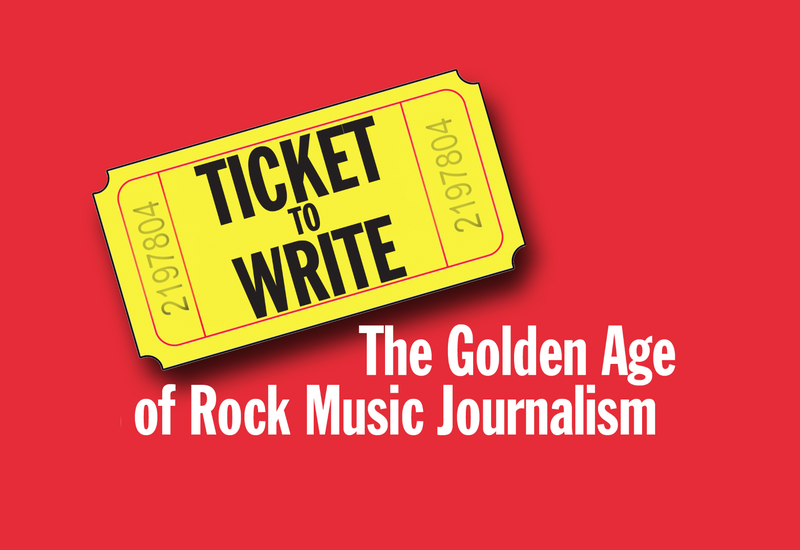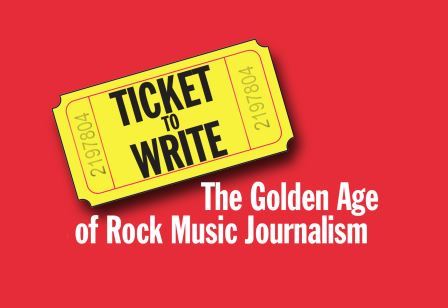
Two amazing men have whisked themselves into my life all of a sudden only to come up with a new, fresh and revolutionary documentary about music journalism. This to me, is a blast because one of my favorite things to do is actually coming up with new and inventive ways to listen and breathe the music that comes my way. Ed and Raul are two men that are looking to revolutionize the way we look at music in his up and coming fresh and zesty documentary about the art of criticism in music, and let me tell you, it is quite an art form from personal experience. It's the one place where my wit never fails me, too. Anyway, these two amazing guy's are here to talk to Punk Globe about their fabulous film! So, here is the executive producer Ed Turner and director Raul Sandelin to tell us more about Ticket To Write!
PUNK GLOBE:
Hey, my friends! How are you doing? So, Talk to me! This film is setting Tinseltown and other places abuzz! I want to know about it! Who's in it? What's the story behind it?
Ed Turner:
Hey Sophia, doing great! It's a pleasure to speak with you. and thank you for asking about the documentary. Ticket to Write spans the years 1966 - 1981 - "The Golden Age" of print rock journalism - and features 31 interviews with music journalists and musicians. Raul Sandelin , the director, came up with the idea for the film. I don't want to give too much away, but there's a reason the film ends in 1981.
Raul Sandelin:
Thanks for having us, Gypsy! It's a real pleasure to be here.
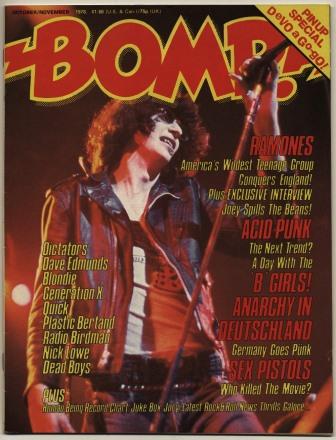
PUNK GLOBE:
What possessed you, guys to want to do a film on music journalism? I"m in love with the idea and the art form itself. Is this something that you, guys had in mind a long time to do?
Ed Turner:
Raul came up with idea to do a film about music journalism - this was uniquely his vision . I will say, in discussing the development of the film, it wasn't something that took place over a long period of time. Rather, once Raul suggested the idea, we settled on it - after batting a few other ideas back and forth - very quickly . So. no, I wouldn't say it was something we had in mind a long time.
Raul Sandelin:
The new film Ticket to Write: The Golden Age of Rock Music Journalism grew out of a film I did a year ago: A Box Full of Rocks The El Cajon Years of Lester Bangs. This film chronicled the childhood of the famed rock journalist. Both Lester and I grew up in the same hometown- El Cajon, CA.
The question then became- Do we do a sequel? The "adult" years of Lester Bangs? We ultimately decided to broaden it out and look at "rock music journalism" as a literary sub-genre instead of scrutinizing Lester Bangs again.
PUNK GLOBE:
What do you love most about doing a documentary?
Ed Turner:
Well, for me, there's such a learning curve just within the space of developing a film, whatever the subject of that film might be . And once you've settled on your subject , then you're into a whole new area of learning . In this case , it just so happened to be music journalism. Certainly, as someone who loves rock music, I've probably read most of the journalists interviewed in the film, only now I'm coming at it from the other direction, learning about the writers themselves rather than the artists they write about. And that's been fascinating . As well as the perspective the musicians bring to the film, discussing what it's like to be on the 'other end' of the critic's pen,so to speak.
Raul Sandelin:
For me, it's always the doors that open, the people you meet, and the surprises that ultimately worked themselves out. This time around, it was meeting some of my literary heroes. It felt like we'd hit the big time when we were sitting in former Rolling Stone editor Ben Fong-Torres' living room.
"This time around, it was meeting some of my literary heroes."
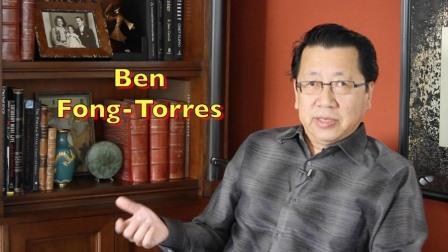
PUNK GLOBE:
I don't often see films about music journalism, let alone be documentaries. What brought the two art forms together for the both of you?
Ed Turner:
This might be a question Raul could answer better than I could as he had the idea for Ticket to Write pretty much together when he presented it to me . Having said that, one way of answering your question is actually contained in the question itself - you
'don't often see films about music journalism , let alone documentaries'. And what appealed to me about the project was just that - it had never been done before . So there's that aspect of it, breaking new ground.
Raul Sandelin:
Music Journalism truly is an overlooked niche within the totality known as "popular music" or the "music industry." There's so much coverage of the rock stars, of course, and many other aspects of the business and culture. But, strangely, the music writers are overlooked. It's like the writers were so busy writing about everyone else that nobody bothered to write about the writers. The cobbler's kids don't have shoes, I guess.
PUNK GLOBE:
What do you want people to get out of it once they see it?
Ed Turner:
Well , let me answer your question this way. We came up with an FAQ sheet to send out to the press and potential distributors, people like that, and Raul's ' tag line' for the FAQ is, ' For those who know ALMOST everything about rock 'n' roll '. And I think that's a great approach.So, I would hope that, after watching Ticket to Write, people would come away saying, Now I know more than I did.
Raul Sandelin:
Like Ed said, one of the tag lines we've played with is "For those who know ALMOST everything about rock n' roll." We want people to know that there are still little-known stories (and cultural lessons) to be learned from the rock n' roll generation. The film asks the question: Is rock n' roll dead as a mass-cultural force. (And there's opinion on both sides of that question.) But, one thing's for sure: There are still things to be learned from the 1960s-70s. And, we can't let "pop" history just compress that time-period into a handful of stereotypes.
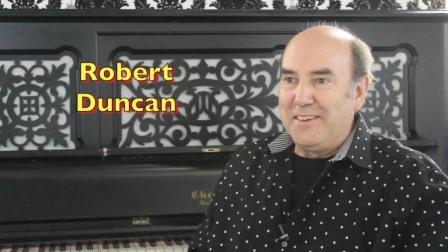
PUNK GLOBE:
Are there any expectations for the film that you have? If so, what are they, if any?
Ed Turner:
To begin with, I hope the film reaches the audience out there who finds this as fascinating as we do. And, in time, perhaps we'll reach a wider audience, the people who might not necessarily have taken a look the first time around, but hopefully will be curious enough to watch now.
Raul Sandelin:
Certainly, we're looking for distribution as we speak. As Ed said, we want the film to reach the widest audience possible. So, we want to get it into theaters (i.e.- art houses), film fests, then finally a Netflix-type download. If the film eventually becomes a cult classic, I'd consider it a success.
PUNK GLOBE:
Whose idea was it to do a documentary on music journalism? Who was the idea inspired by?
Ed Turner:
Raul had previously directed a film entitled, A Box Full of Rocks : The El Cajon Years of Lester Bangs, and he initially approached me about doing a 'Part 2', a companion piece, to A Box Full of Rocks. The idea was, Okay, the first film was about Lester's formative years, so let's make the next film about what happened when Lester went off to New York and essentially made a name for himself as a rock critic.
That was the premise we started with. However, Raul came to the conclusion that we should widen the scope of the film, and look at the other music journalists, like Lester, who were influential in that timeline from the late 60s to early 80s.
Raul Sandelin:
Again, I had the dumb luck to grow up in El Cajon, CA, the same town that Lester Bangs grew up in. El Cajon was this weird musical oasis in the 1960s-70s. There were a couple of big clubs. The Iron Butterfly came out of El Cajon. Frank Zappa did a couple years of high school here. The list goes on. And, finally, El Cajon produced one of the best (and definitely the most iconic) rock journalists the world has ever known- Lester Bangs. So, Lester's legacy really inspired the whole trajectory of rock journalism.
PUNK GLOBE:
Who are you influenced by to do get to this point in doing this film in your lives?
Ed Turner:
If I can take a moment to answer that question by giving you the backstory. I got to know Raul after I watched a rough cut of A Box Full of Rocks on YouTube, and enjoyed it so much that this is what prompted me to first get in touch with him - and that was more or less to pass on my congratulations for a job well done. Now, to go from that phone call to actually PRODUCING a feature -length film, I would have to say the influence came from Raul himself. Indirectly, of course, because he had made a film about a writer whose work I greatly admire. But more directly because that dialogue about A Box Full of Rocks is what led to Raul's suggestion that we should work together and develop another film. You have to remember, you're talking about two people who already had in common an interest in the work of Lester Bangs , so it wasn't too much of a stretch, I suppose, that we would end up working together on a film about music journalism.
Raul Sandelin:
Besides Lester, I keep thinking of two film makers and surprisingly, they are both focused on extreme sports: Bruce Brown and Stacey Peralta. Something about Brown's On Any Sunday and Peralta's Dogtown and Z-Boys. They both are indie documentarians that I admire even if we're focused on different subject-matter. They both captured different aspects of the 60s/70s, which is exactly what we wanted to do.
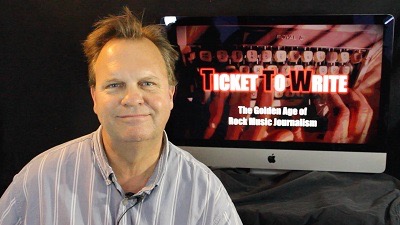
PUNK GLOBE:
Who or what inspires you?
Ed Turner:
My inspiration comes from a love of the form itself, of documentaries. Naturally, when presented with the opportunity to actually MAKE one, well, I just couldn't pass that up!!
Raul Sandelin:
I have to echo what Ed said. The history of film making is a mighty legacy. And, just being part of it is inspirational.
PUNK GLOBE:
Is there a particular person you had in mind that you wanted to bring out in the film? If so, why?
Ed Turner:
Well, I think the spirit of Lester Bangs, his influence certainly, comes across in the film. You see so many references to him throughout the interviews, not just the writers but the musicians as well. Having said that, I don't believe there was a particular person you could say was meant to be the focus of the film, and I don't think Raul had any one person in mind either. Collectively, perhaps you could say that 'person' is the Rock Critic.
Raul Sandelin:
I wanted to be democratic. But, sure, if there was a favorite, it was Lester Bangs. We'd done the first documentary A Box Full of Rocks: The El Cajon Years of Lester Bangs about Lester's childhood in Southern California. But, let's face it: Lester deserves that extra nudge. There were other great writers to be sure. But, Lester was rivoting. He was more than the sum of his parts. If rock journalism had an Elvis, it was Lester Bangs.
PUNK GLOBE:
How does this film fill any gaps or questions for people who are curious about the art of music journalism? Are there any questions you had in mind to fulfill the curiosity of from others?
Ed Turner:
With the number of journalists that were interviewed, and the many publications they've written for - collectively, their work has appeared in every influential music magazine that has ever been published, from underground to mainstream - as well as the East Coast /West Coast demographic, I think you could safely say you have the subject of rock music journalism pretty much covered. Exactly what questions people might want to ask is a little hard to say. But I'm fairly certain they'll find the answers here.
Raul Sandelin:
To be honest, there aren't too many films about rock journalism. There are many more books, of course. Then, there's Cameron Crowe's Almost Famous, which brought rock journalism to the mainstream. But, there are still many gaps to be filled with films on the subject. As we said, the film's working motto is "Ticket to Write- For those who know almost everything about rock n' roll." We're filling one little niche. But, there are others. There are some people in Detroit who will hopefully do a film doc on Creem.
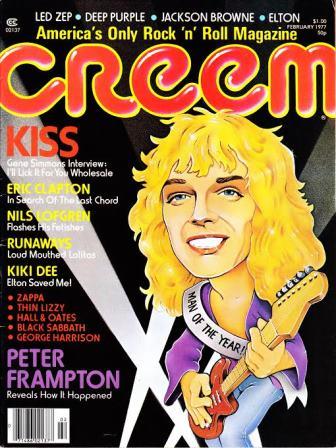
PUNK GLOBE:
What are some of the elements you incorporated in this film that you may or may not have seen in others of this genre?
Raul Sandelin:
We didn't have a lot to work with that was kinetic. We didn't have Jay Adams bunny hopping his skateboard. We had people, now in their 60s, recalling the days when they sat around and typed. I'm being facetious. But, the world of rock journalism doesn't have the same visual movement as, say, the world of motorcycle racing. So, we had to find something that was kinetic: The typewriter the fingers typing the typewriter. That was our downhill luge run. So, we did close ups and some trick camera work to make the typewriter become a character of sorts.
PUNK GLOBE:
What kind of dialogue did you have in mind of starting when putting out this film?
Ed Turner:
The dialogue I hope the film inspires is really found in the title, The Golden Age of Rock Music Journalism . There was a period of time - and I think we were right to call this a " Golden Age " - when print journalism was an art in itself. As one of the journalists interviewed in the film points out , A lot of the bands Lester Bangs wrote about no one even remembers the names of today, but what they DO remember, what endures, is Lester's writing. And I think that's a key point , and worth our attention . In a broader context , I hope the discussion, the dialogue, will be : How did this "Golden Age " of journalism start, and - perhaps just as crucially - why did it end?
Raul Sandelin:
We approached this film as a documentary. We didn't know what we were going to get. We knew we just had to start filming, start interviewing, collecting photos and footage, etc. Basically, we had to start without knowing what we wanted. We had to let it all accumulate without knowing where it was going.
PUNK GLOBE:
What is the best part of making this film?
Ed Turner:
For me, as the producer, it was having the opportunity to reach out to these incredible writers and musicians who participated in the film. A good deal of my time - not so much with the writers, as Raul coordinated a lot of that - was spent contacting the musicians. setting up interviews, and so on . And they were all very gracious with their time, very approachable. To take just one example, who hasn't heard "What I like About You" by The Romantics, it's playing somewhere on a classic rock station right now. That song was part of the 'soundtrack' of my youth. So to find myself on the phone one day with Mike Skill, the guitarist and co -writer of that classic, discussing his interview for the film , well , that was very exciting.
Raul Sandelin:
Meeting all of the people we did, all of the people we interviewed and worked with. This is the first feature film that Ed and I have worked on together. And, that has been truly great. We look forward to making many more films in the future. We also have a great group of filmmakers, creatives, and musicians working on the project: Tony Butler, Len Torres, Jack Butler, Jon Kanis, narrator Gabriel Wisdom, and many others
"'What I like About You' by The Romantics, it's playing somewhere on a classic rock station right now."
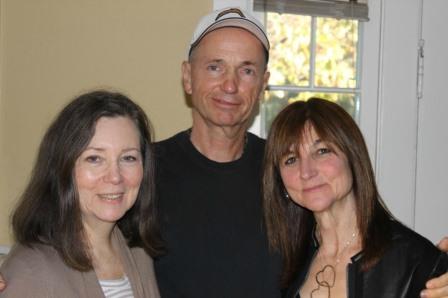
PUNK GLOBE:
Did you have any setbacks that you felt you had to go back and re-work?
Ed Turner:
I think Raul can speak to that better than I can , as he and his editor, Tony Butler, certainly worked through their share of technical difficulties in the development of the film. However, if pressed, I would say that song licensing certainly presented some problems for us, simply because once we found a song that we felt would really hit the spot, really fit a certain segment of the film, we then had to research who owned the publishing rights, who owned the master recording - all questions that have to be answered if you want to license a song. And this resulted in quite a few dead -ends, especially when we were searching out some of the older , more obscure "garage band" type songs. Not to mention, if you were lucky enough to find the answers to those questions, the reality was licensing just ONE song could prove to be very expensive.
Raul Sandelin:
The biggest setback was the name-change. We started the project using the name "The Rock Bards" for the film, the idea being the rock writers were the "bards" of rock n' roll. Some liked it. But, some hated it. So, we back out of the cul d'sac and went through a whole identity search. Ultimately, after interviewing almost everybody involved, the legendary Ben Fong-Torres came up with "Ticket to Write." It was perfect. But, that perfection came after a lot of toil was put into that name change.
PUNK GLOBE:
Who or what element do you think brought out the best in this film?
Ed Turner:
From a development standpoint, even in the very earliest stages, Raul and I were committed to a ' team approach' to this project. The idea that, from the editing to the graphics to the soundtrack, and all points in between, we would pull together this really amazing group of people, each talented in their own way, and collectively we would make this film a success. And I think that's just what we did. And I found that the enthusiasm for the project was equally high across the board. Everyone involved was passionate about turning in a great documentary.
Raul Sandelin:
Jaan Uhelszki describes this band of rock journalists as a tribe. They were a collective. They wrote for different magazines and papers. But, like professional athletes, they were constantly leaving one team for another. Therefore, their first allegiance in many ways was to each other- the strange little tribe of rock writers. So, to answer "who," I want to give credit to that collective tribe of writers who brought out the best in the film together.
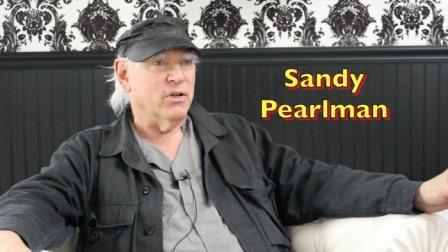
PUNK GLOBE:
Anything you want to say to the readers of Punk Globe?
Ed Turner:
Thank you for reading about our film!
Raul Sandelin:
Thank you for keeping rock n' roll alive. As discussed in Ticket to Write, rock n' roll used to be the soundtrack to the Revolution. Now, it's being used to sell cars and Depends adult undergarments (no joke). So, it's invigorating to always meet people who still passionately love rock n' roll.
PUNK GLOBE:
You, guys are an amazing duo and I wish only the best for you, and this film! You bring sparkle to the girl from Texas!
Ed Turner:
Thank you , Sophia, What an honor to speak with you,and to be featured in Punk Globe. All the best !
Raul Sandelin:
Thanks so much for having us!


